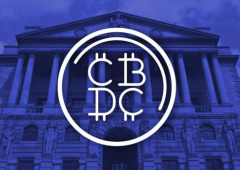Hacker Group Claims Responsibility for X Outage
12.03.2025 22:00 1 min. read Alexander Stefanov
A cyberattack on X (formerly Twitter) recently disrupted access for thousands of users, but the issue was quickly resolved.
The hacking group responsible, Dark Storm, claimed credit for the attack, which was later identified as a Distributed Denial-of-Service (DDoS) assault. The group announced their involvement through a Telegram post, which was later removed for breaching the platform’s terms.
SpyoSecure, a cybersecurity organization, reported on March 10 that Dark Storm’s leader confirmed the attack, stating that their goal was simply to demonstrate their capabilities, with no political agenda.
Although the Telegram channel was deleted, screenshots of their claims circulated, showing evidence of failed connection attempts across various global locations.
Ed Krassenstein, a well-known figure in the NFT space, also reported his interaction with the leader of Dark Storm, further confirming the group’s involvement. While Dark Storm, a pro-Palestinian hacking collective with Russian ties, has been active since 2023, their recent attack was part of a broader strategy of targeting NATO-affiliated countries.
Elon Musk, owner of X, acknowledged the attack in a conversation with Fox Business’s Larry Kudlow, revealing that they suspected the hackers’ IP addresses to trace back to the Ukraine area, though the full details of the incident remain unclear.
-
1
U.S. Bank Advises Clients to Drop These Cryptocurrencies
29.06.2025 10:00 2 min. read -
2
Chinese Tech Firms Turn to Crypto for Treasury Diversification
26.06.2025 17:00 1 min. read -
3
FTX Halts Recovery Payments in 49 Countries: Here Is the List
04.07.2025 18:00 2 min. read -
4
What Are the Key Trends in European Consumer Payments for 2024?
29.06.2025 8:00 2 min. read -
5
What Brian Armstrong’s New Stats Reveal About Institutional Crypto Growth
29.06.2025 15:00 2 min. read
U.S. Public Pension Giant Boosts Palantir and Strategy Holdings in Q2
According to a report by Barron’s, the Ohio Public Employees Retirement System (OPERS) made notable adjustments to its portfolio in Q2 2025, significantly increasing exposure to Palantir and Strategy while cutting back on Lyft.
Key Crypto Events to Watch in the Next Months
As crypto markets gain momentum heading into the second half of 2025, a series of pivotal regulatory and macroeconomic events are poised to shape sentiment, liquidity, and price action across the space.
Here is Why Stablecoins Are Booming, According to Tether CEO
In a recent interview with Bankless, Tether CEO Paolo Ardoino shed light on the growing adoption of stablecoins like USDT, linking their rise to global economic instability and shifting generational dynamics.
U.S. Dollar Comes Onchain as GENIUS Act Ushers in Digital Era
In a statement that marks a major policy shift, U.S. Treasury Secretary Scott Bessent confirmed that blockchain technologies will play a central role in the future of American payments, with the U.S. dollar officially moving “onchain.”
-
1
U.S. Bank Advises Clients to Drop These Cryptocurrencies
29.06.2025 10:00 2 min. read -
2
Chinese Tech Firms Turn to Crypto for Treasury Diversification
26.06.2025 17:00 1 min. read -
3
FTX Halts Recovery Payments in 49 Countries: Here Is the List
04.07.2025 18:00 2 min. read -
4
What Are the Key Trends in European Consumer Payments for 2024?
29.06.2025 8:00 2 min. read -
5
What Brian Armstrong’s New Stats Reveal About Institutional Crypto Growth
29.06.2025 15:00 2 min. read


